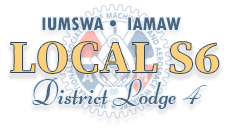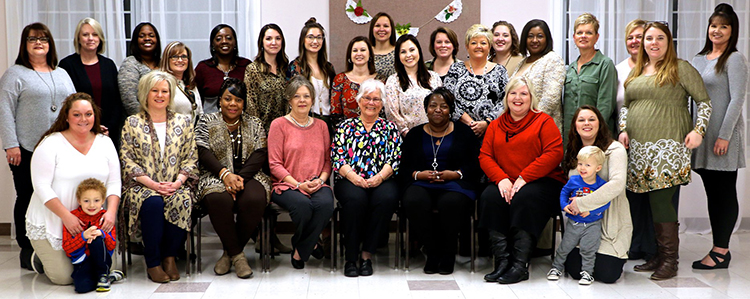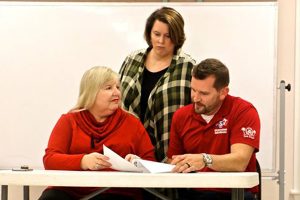IAM Coronavirus (COVID-19) Resource Center
Note: Information on this website may change as the situation, recommendations and resources evolve. Please check back frequently.
About the Coronavirus Outbreak
“COVID-19,” a new coronavirus, has been identified as the cause of a cluster of severe pneumonia cases that emerged in Wuhan, Hubei Province, China in December 2019.
Thousands of contacts are under observation and hundreds of cases have been confirmed in Wuhan. Additional cases have been identified in Japan, South Korea, Thailand and the United States.
About “COVID-19”
The virus is a coronavirus, which is a large family of viruses that can infect animals and/or humans. COVID-19 is similar to the viruses that cause SARS (Severe Acute Respiratory Syndrome) and MERS (Middle East Respiratory Syndrome).
Symptoms include fever and/or symptoms of lower respiratory illness such as coughing or difficulty breathing.
With some viruses, the infectious period precedes symptoms and with other viruses it coincides with symptoms.
Human-to-human transmission is confirmed. However, whether the disease is transmitted via contact, droplet, or aerosol remains unknown. It is also unknown whether asymptomatic cases are infectious.
Employers Must Prepare to Keep Workers Safe
There is often debate about what actions to take and when they should be taken in situations where knowledge is lacking about a specific health threat. Employers often prioritize saving money over safe care and wait to act. Delay in action is unacceptable.
Stay Up-To-Date
Please see the links below for the most up-to-date information on this rapidly evolving situation.
- World Health Organization (WHO) Situation Reports
- Centers for Disease Control and Prevention (CDC) Coronavirus Situation Summary
- U.S. Occupational Safety and Health Administration COVID-19 Overview
- European Centre for Disease Prevention and Control’s Worldwide Situation Update
Advice for Healthcare Workers
Hospitals and other healthcare employers have the duty and responsibility to prepare ahead of time to protect staff and patients by following the precautionary principle. The precautionary principle states that we should not wait until we know for sure that something is harmful before we take action to protect people’s health. Your employer should prepare now, before a possible COVID-19 case arrives at your facility.
Employers can prepare by implementing the following:
- Provide training and education about the virus and how to recognize potential cases.
- Implement screening protocols to promptly identify patients with symptoms and travel history or exposure history that mean the patient may have a COVID-19 infection.
- Ensure prompt isolation of patients with possible or suspected cases of COVID-19. These patients should be placed in airborne infection isolation rooms whenever possible until COVID-19 has been ruled out or the patient has recovered.
- Maintain airborne infection isolation rooms so that they provide protection to staff and patients
- Provide personal protective equipment (PPE) to health care workers providing care to patients with possible COVID-19 infections. PPE should include N95 respirators plus covering of the eyes or powered air-purifying respirators (PAPRS) as well as gloves, gowns, and other PPE for droplet and aerosol precautions.
- Place sufficient staff to provide care to patients safely.
Advice for Transportation Workers
Airlines, airports, and other transportation related employers must provide workers with the latest information regarding the outbreak, follow best practice in regard to health and safety protocols and supply of personal protective equipment, put into effect procedures to identity symptomatic travelers, crew and/or workers, and set clear guidelines for workers managing suspected cases of infection. All of this advice is applicable to all workers and companies across all transport sectors.
Advice for airlines, aviation and transportation workers:
Airlines should not restrict workers’ ability to protect themselves from exposure in any way, including:
- Allowing airline crews and ground staff to wear personal protective equipment as desired – including rubber gloves and facemasks.
- Allowing airline crews and ground staff time and adequate breaks to take all necessary precautions to protect themselves from exposure.
- Should an aviation worker become infected, isolation at home should be prioritized, and the workers must continue to be paid appropriately.
Advice for crew members:
- Encourage all onboard to practice hand and respiratory hygiene especially when coughing or sneezing.
- Crew should use hand sanitizer/wash hands following contact with any passenger or other crew.
- If on a layover in a country with a known coronavirus outbreak, crew are advised to remain in hotel accommodation as much as possible and practice hand and respiratory hygiene and safe food practices (see more below).
If a traveler or crew member onboard has signs and symptoms of infection, follow the International Air Transport Association (IATA) guidelines for cabin crew:
- Ask the ill traveler where he/she has travelled in the last 21 days.
- Call for medical support on the ground or medical assistance on board and follow their advice.
- If possible, try to isolate the ill traveler and relocate the adjacent passengers. If no seats are available, consider giving masks to the adjacent passengers.
- Designate one cabin crew member to look after the ill traveler.
- Designate a specific lavatory for the exclusive use of the ill traveler.
- Request the passenger or crew member use a face mask and replace as needed.
- Encourage the passenger to practice hand and respiratory hygiene:
- Provide tissues and advise traveler to cover their mouth and nose when speaking, sneezing or coughing.
- Advise the ill traveler to practice proper hand hygiene.
- Provide an airsickness bag to be used for the safe disposal of the tissues.
- Crew should stay one meter or more away from the ill passenger unless wearing appropriate protective equipment.
- If touching the ill passenger is required, crew should wear appropriate protective equipment.
- All soiled items (tissues, masks, blankets etc.) should be stored in a biohazard bag if available, if not seal in plastic bag and label it ‘biohazard’.
- Ask accompanying traveler(s) if they have any similar symptoms.
- Advise the captain to report the suspected case(s) to air traffic control and local public health authorities.
- Unless advised otherwise by health officials, ask all travelers seated in the same row, 2 rows in front and 2 rows behind the sick traveler to complete a passenger locator form if available.
Ways to protect yourself and others from coronavirus:
There is currently no vaccine to prevent Corona virus infection, the best way to protect yourself from infection is to avoid being exposed to this virus.
The following advice from the UN lists everyday habits that can help prevent the spread of the virus:
- Frequently wash your hands with warm water and soap for at least 20 seconds or use an alcohol-based hand sanitizer.
- Cover your mouth and nose with a flexed elbow or tissue when sneezing or coughing.
- Avoid touching your eyes, nose and mouth with unwashed hands.
- Avoid close contact with anyone who has a fever or cough.
- Stay at home if you are sick.
- Seek early medical help if you have a fever, cough and difficulty breathing, and share your travel history with healthcare providers.
- Avoid direct, unprotected contact with live animals and surfaces in contact with animals when visiting live markets in affected areas.
- Avoid eating raw or undercooked animal products and exercise care when handling raw meat, milk or eggs to avoid cross-contamination.
The post IAM Coronavirus (COVID-19) Resource Center appeared first on IAMAW.


 “This group is still 100 percent women and 100 percent union in Alabama. That speaks for itself – this is a tough group of Machinists! These ladies will always fight for what’s right, no matter the issue. Not just in their own backyards but for workers across Alabama, especially those in the financial industry who need someone like the IAM in their corner,” said District 75 Business Representative Matt Griggs.
“This group is still 100 percent women and 100 percent union in Alabama. That speaks for itself – this is a tough group of Machinists! These ladies will always fight for what’s right, no matter the issue. Not just in their own backyards but for workers across Alabama, especially those in the financial industry who need someone like the IAM in their corner,” said District 75 Business Representative Matt Griggs.